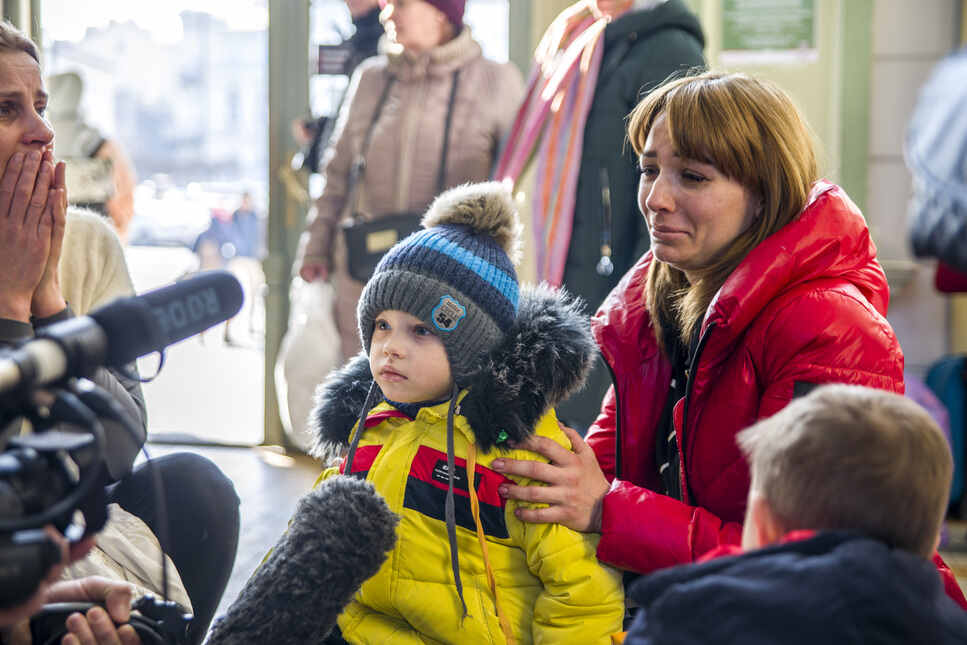“I wish that all of these people could return to their homes someday,” says Oriol Leza Vidal, a Spanish photographer who has just returned from Medyka and Przemyśl. Oriol has been a photographer for 20 years, but this is the first time he has tackled the subject of war in his career. Shocking photos of refugees from the Polish-Ukrainian border leave the viewer with a torn heart.
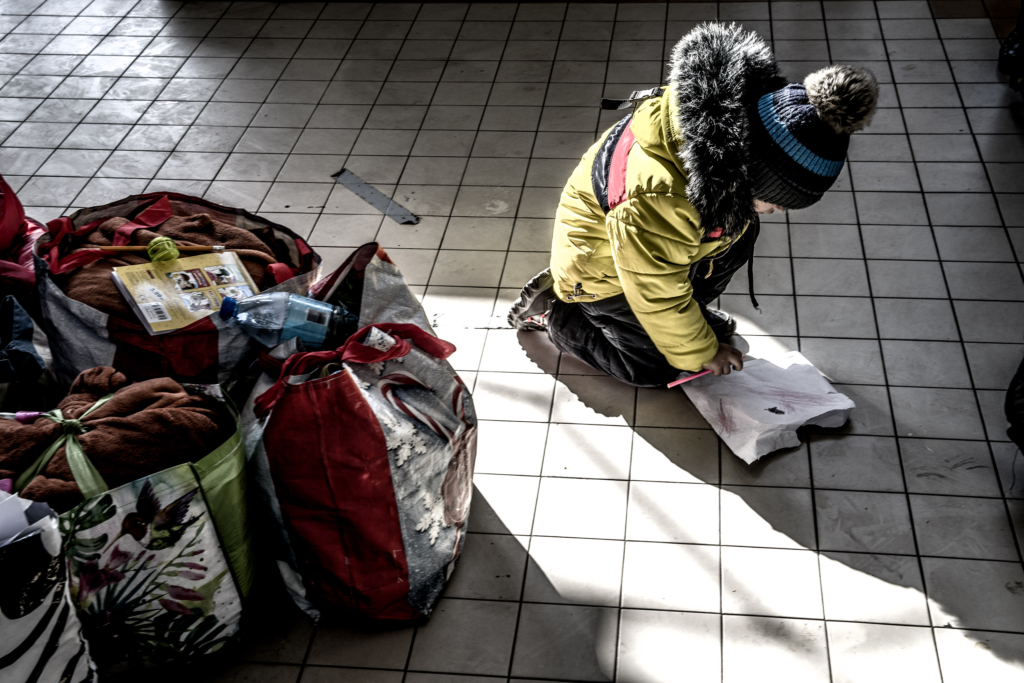
Dominika Szwed: What type of photography interests you most? What are you looking for as a photographer?
Oriol Leza Vidal: People are most important to me in photography. I want my photos to be a story about people, to say something about their lives. I like street photography, observed scenes from the lives of ordinary people. I want to show a fragment from their lives. I am interested in reportage photography. Of course, I also photograph nature. However, the most important thing for me is always the person.
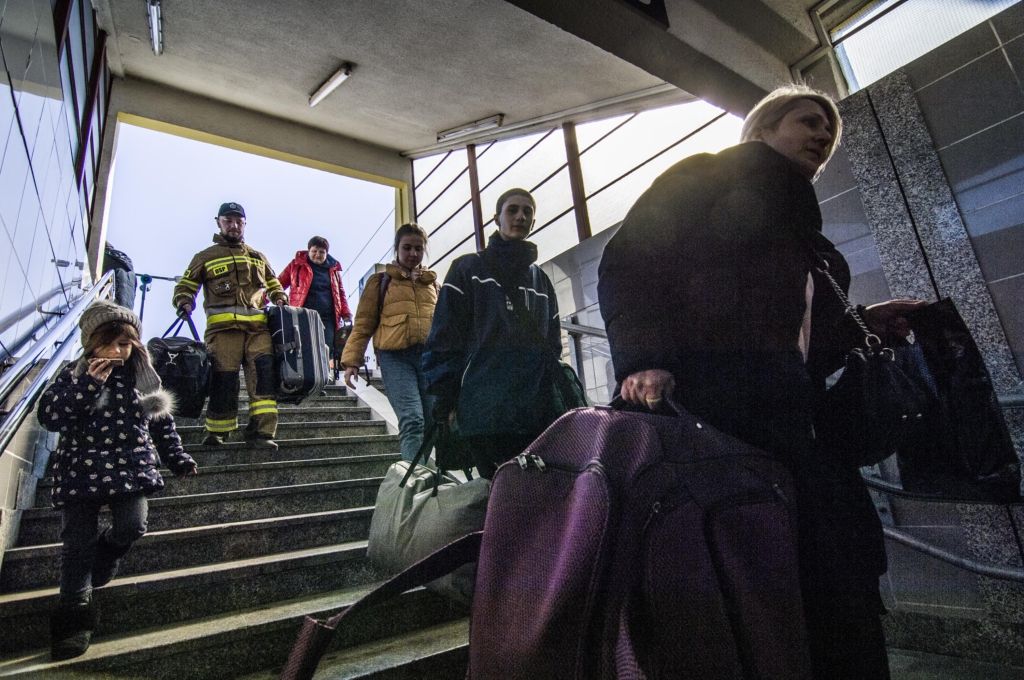
Dominika Szwed: Why did you decide to come to Medyka?
Oriol Leza Vidal: It was an easy decision. Spain is not far from Poland. Many people are now going to Poland, to the border with Ukraine, to help people escaping war-torn areas. The camera is my operational tool. Everyone tries to help as much as they can. A group of Brazilians traveled to Ukraine. They put on military clothes, took rifles in their hands and went to fight. I picked up the camera.
Dominika Szwed: What do Spaniards and Catalans know about the war? Is this war visible in the media, in the streets? Do people from your country have any interaction with Ukrainians?
Oriol Leza Vidal: In Spain and Catalonia, people are well informed about the war. Many people from Ukraine live and work here. Some of the villages are inhabited by entire Ukrainian communities. Many of these people became involved in helping their fellow countrymen at the border. Like I said, a lot of Spaniards go there as well.
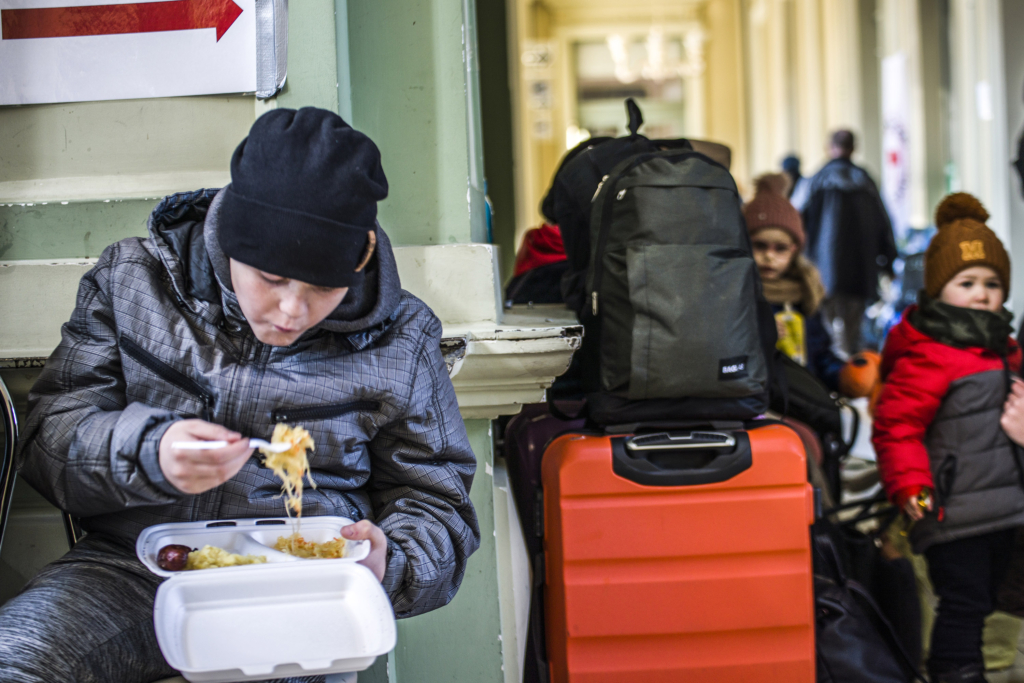
Dominika Szwed: What feelings did you have before you left? Did you have any ideas about what it would be like on the site?
Oriol Leza Vidal: I was scared. I knew that I would meet people affected by great suffering, who were forced to leave everything, to leave homes to which they might not return. Initially in Medyka, I was surprised that there were so few refugees and so many volunteers. The support is really very well organized there. There are many volunteers, people from all over the world. I also met Catalans among them. In those early days, there were few refugees in Medyka. Then I decided to go to the train station in Przemyśl. There I saw trains from which thousands of people got off. Such a huge crowd of people, it was a shocking sight. It was moving that there were no young men among them at all. Only elderly people and women with children. I saw a lot of suffering there, these people have been through a lot, at times I cried along with them. But I also saw joy; after all, these were survivors, they had managed to escape, a new life awaited them.
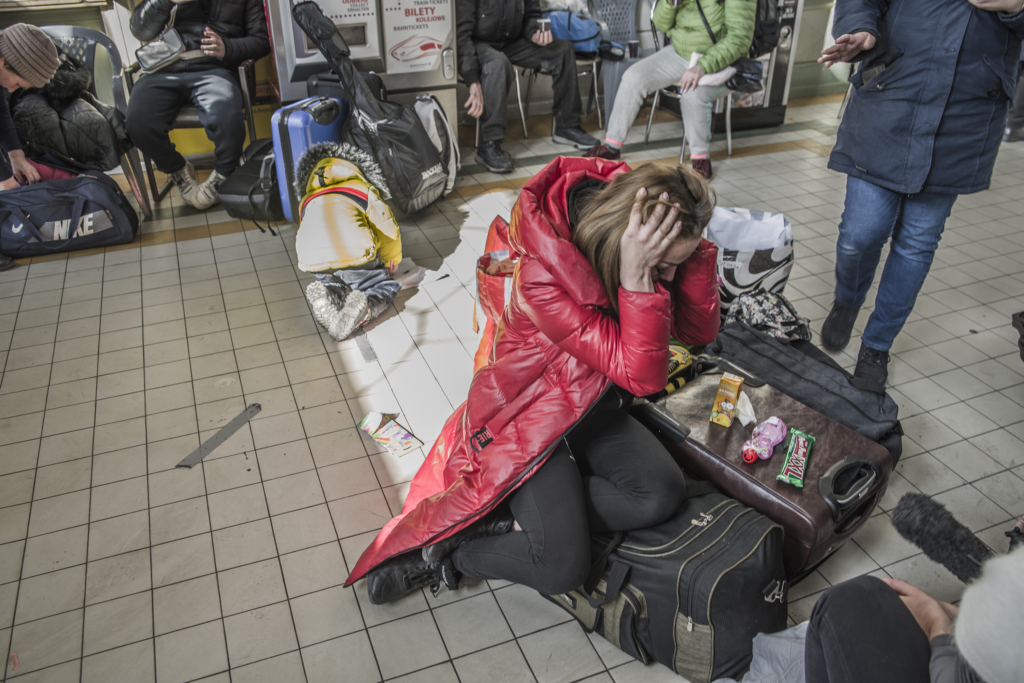
Dominika Szwed: Is there anything that has stayed in your memory that you cannot forget?
Oriol Leza Vidal: Yes. I was taking photos and suddenly a shaken woman started running towards me, she was with an interpreter from Poland and she was terrified, crying. She shouted that we had to save Mariupol, that they were razing it to the ground, that bombs were falling everywhere there now. I didn’t know what to answer her. After all, I couldn’t say, “Don’t worry, you’ll be fine.…” I could only make a small gesture and tried to hug her with my arm.
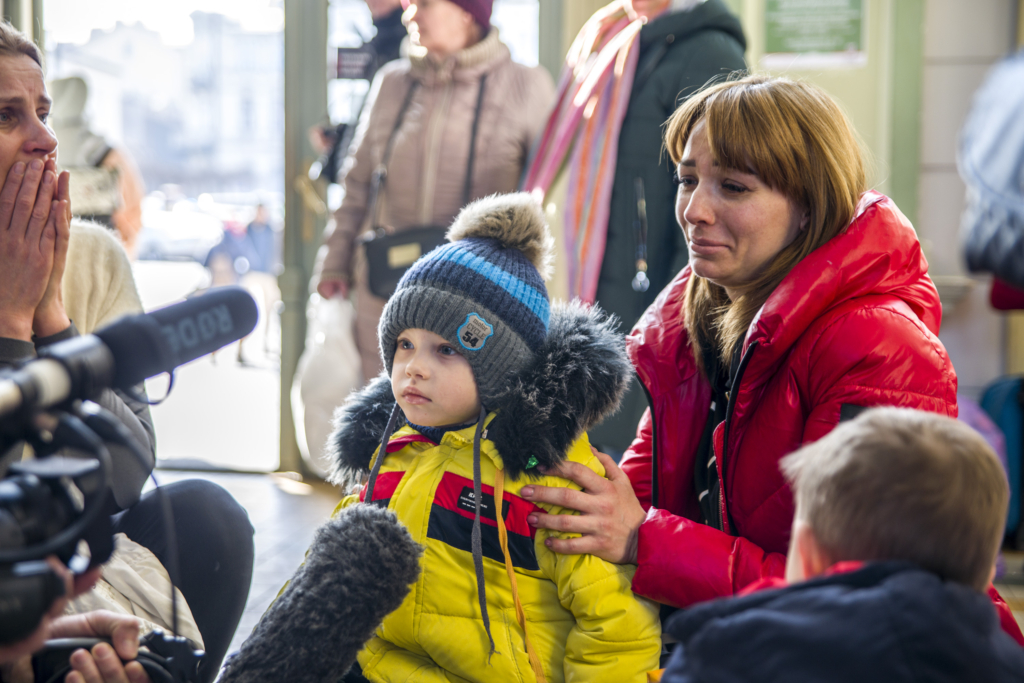
Dominika Szwed: How do you see your reportage from Medyka and Przemyśl in the context of your photographic projects?
Oriol Leza Vidal: This is not a closed project. I would love to photograph the continuation of this story here in Spain. I would like to do a report on the Ukrainians who found refuge here. About how they are doing here, about their new life in Catalonia.
Dominika Szwed: Thank you for the interview.
The interview was conducted by: Dominika Szwed
Photos by Oriol Leza Vidal, some of which can be seen here
English Translation: Natalia Chojnowska
Polish version here
Do you like that interview? You may also read:
Read: ‘Squid Game’ – a review of Korean Netflix phenomenon
Read: Disappointing James Bond – ‘No Time to Die’ review
Read: “The Triplets of Belleville”. The Trio That Captivated the World.

Znajdź ciekawe koncerty w naszej


 Dodaj wydarzenie
Dodaj wydarzenie Kalendarz
Kalendarz Moje konto
Moje konto